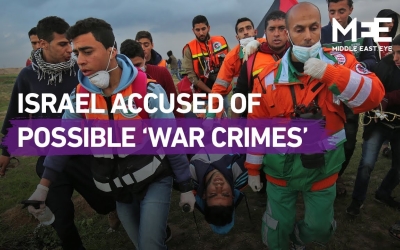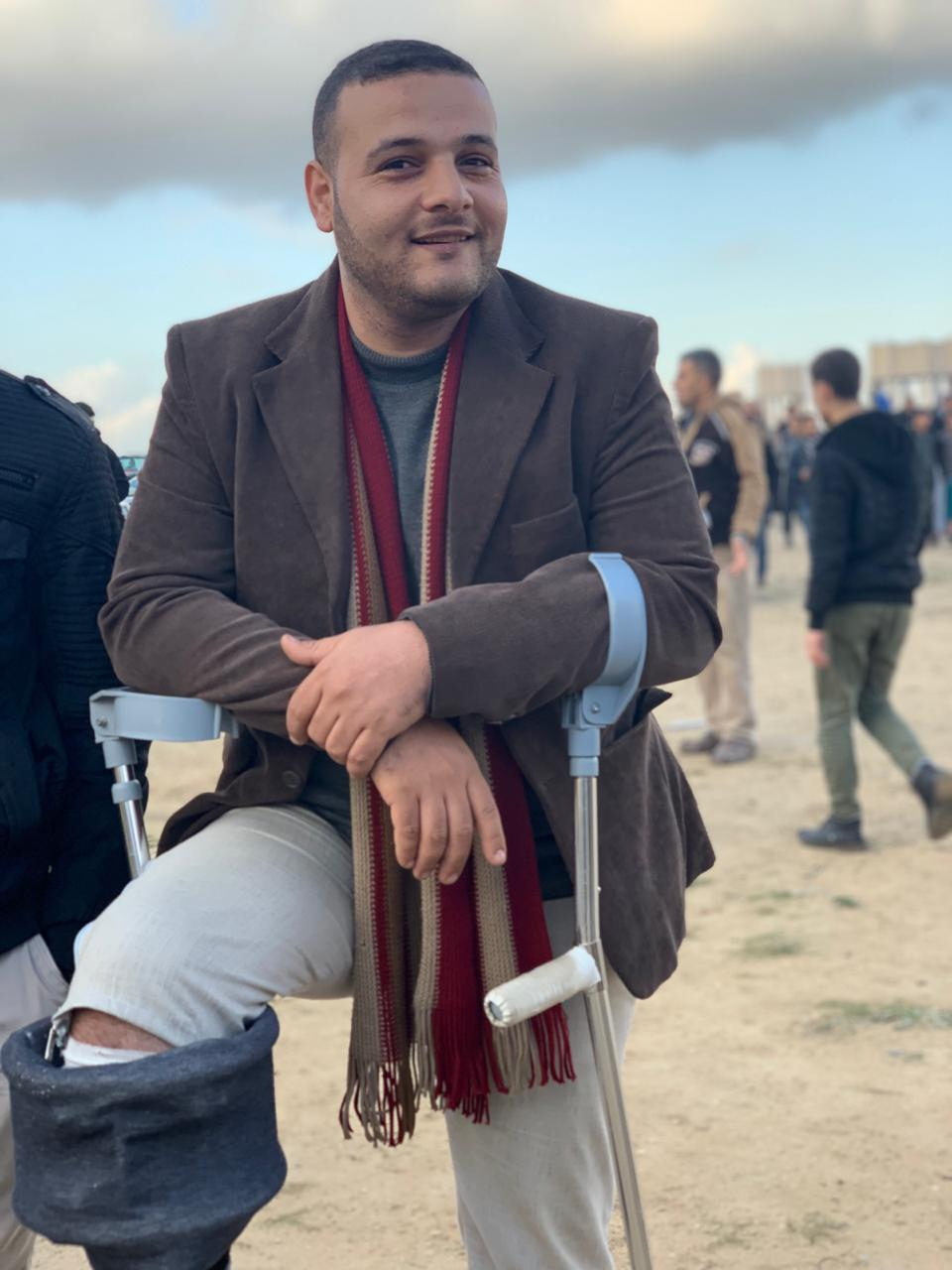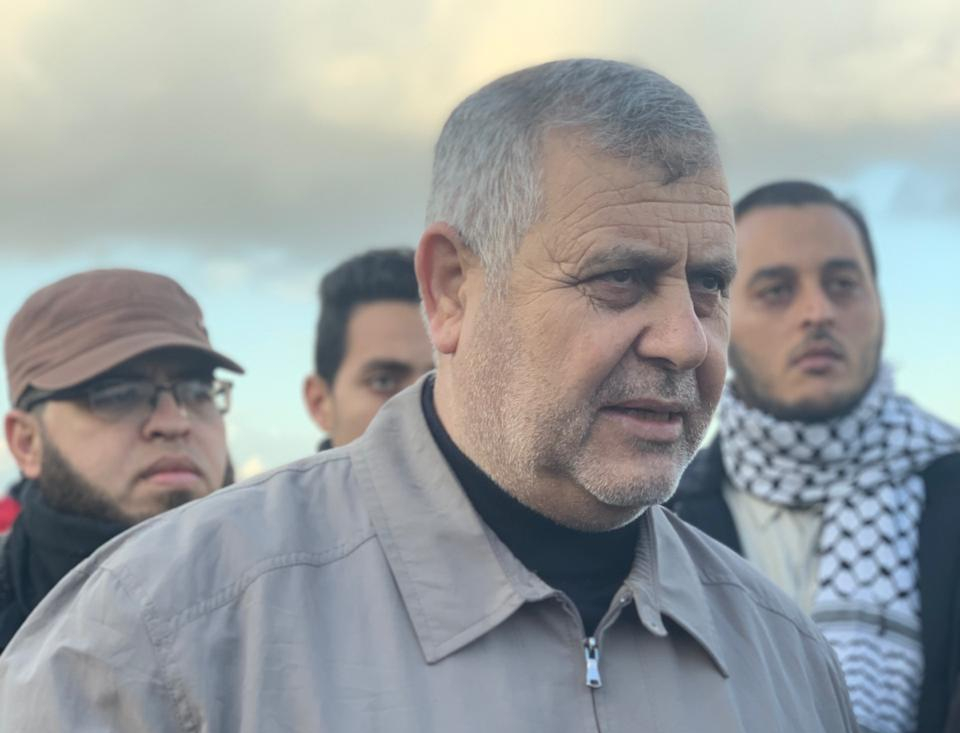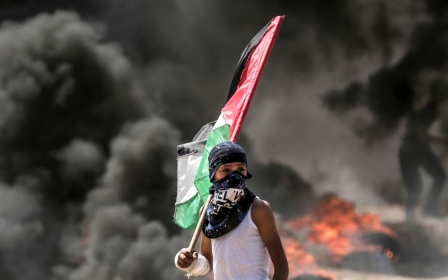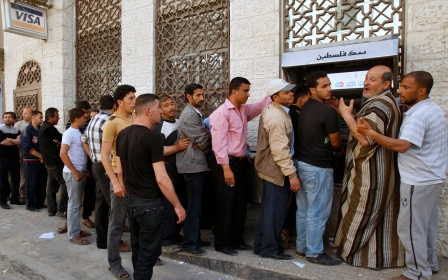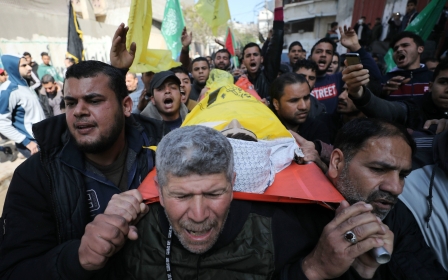Israeli forces injure Palestinian protesters, medics, journalist in Gaza Strip
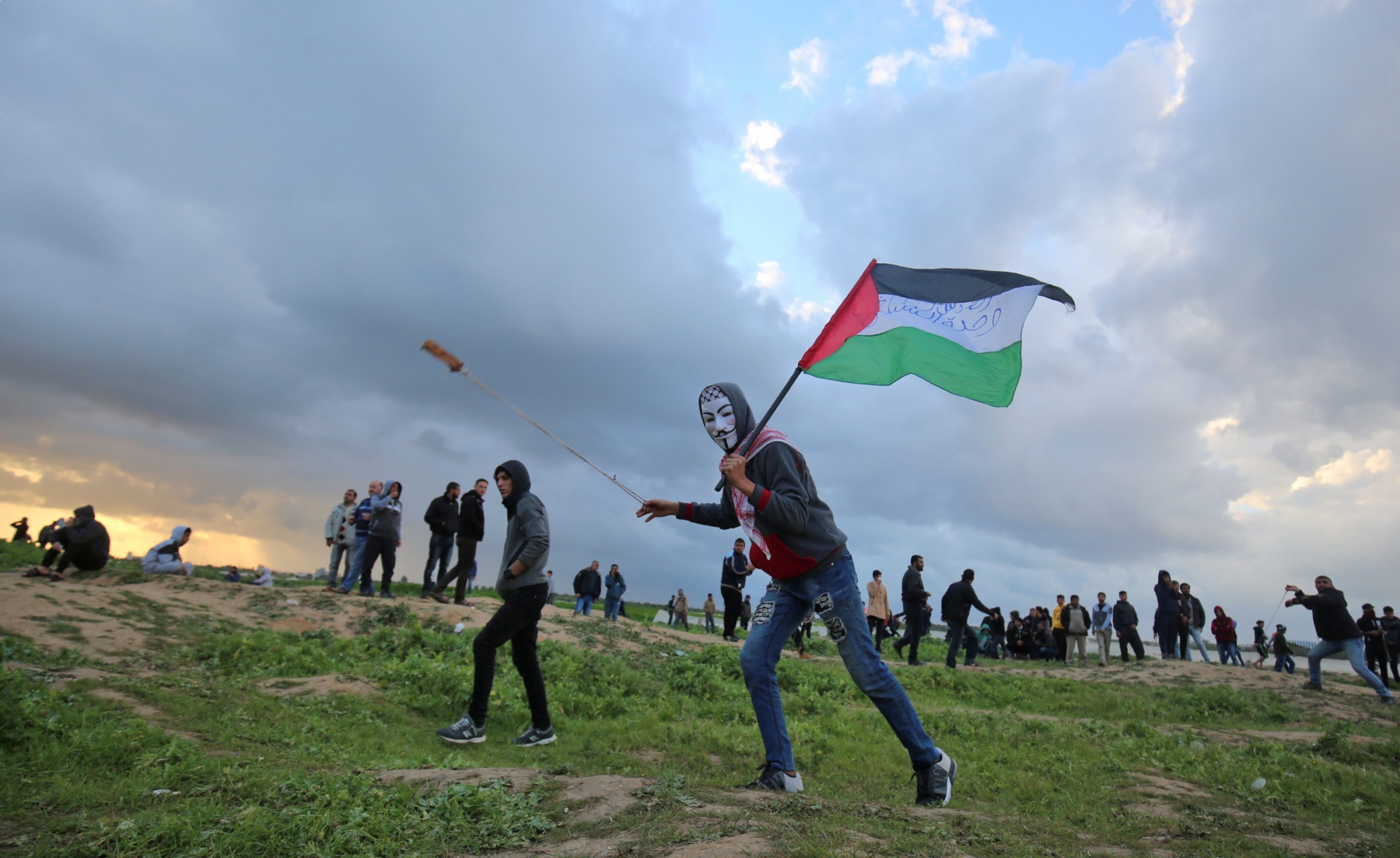
A day after UN investigators issued a report indicating that Israeli forces were likely committing war crimes in their violent repression of protests in Gaza, Palestinians once again demonstrated in the besieged coastal enclave on Friday as part of the Great March of Return.
According to the Gaza Ministry of Health, Israeli forces shot and wounded at least 17 demonstrators with live bullets at of 5:45pm local time (3:45pm GMT). Three paramedics and a journalist were also reportedly hit by tear-gas canisters in the lower limbs.
An ambulance was also reportedly targeted with tear gas, causing another three paramedics to suffer from excessive tear-gas inhalation, the ministry said.
By still participating in the march despite my crutches and wounded leg, I am taking revenge for my injury
- Mohammed Esdoudi, demonstrator
A Middle East Eye correspondent east of Gaza City reported that Israeli forces fired tear-gas canisters very close to individuals, adding that one such canister narrowly avoided her head.
The report handed to the UN High Commissioner for Human Rights on Thursday said Israeli forces have used excessive force against Palestinian demonstrators participating in the Great March of Return in the past 11 months.
New MEE newsletter: Jerusalem Dispatch
Sign up to get the latest insights and analysis on Israel-Palestine, alongside Turkey Unpacked and other MEE newsletters
"Israeli security forces killed and maimed Palestinian demonstrators who did not pose an imminent threat of death or serious injury to others when they were shot, nor were they directly participating in hostilities," the panel report said.
The Israeli Ministry of Foreign Affairs dismissed the report on Thursday, saying Israeli forces only used "restrained action" and that the UNHRC was "an accomplice of a terrorist organisation" - meaning Hamas, the de facto ruling party in Gaza - for endorsing the report.
"This report was born in sin, in a politically biased, one-sided resolution that determined the outcome before the investigation even started," ministry spokesman Emmanuel Nahshon said in a statement.
But for Mohammed Esdoudi, a 30-year-old demonstrator, the report came none too soon.
"My experience is the biggest proof of Israeli violence and war crimes," he told MEE, leaning on his crutches, a blue cloth covering the brace on his right knee.
"I was injured seven months ago by Israeli snipers, and I have been painfully going between hospitals in the Strip, dealing with a lack of medicine and medical supplies," he said.
"By still participating in the march despite my crutches and wounded leg, I am taking revenge for my injury."
Abu Mohammed Hasani, another wounded demonstrator, concurred.
A kuffiyeh wrapped around his neck and a Palestinian flag in his hand, the 48-year-old from al-Shati refugee camp motioned towards fellow protesters injured nearby after Israeli forces fired tear gas and live bullets into the crowd.
"Unarmed protesters are being targeted with live ammunition and [gas] bombs, daily! Killing is something we witness every day," he told MEE.
Khaled al-Batsh, a leader of the Islamic Jihad and member of the committee for the Great March of Return, told MEE that the UN report should pave the way for legal recourse to be taken by the international community.
"We are now waiting for the second stage, for necessary action to be taken against Israel to hold it accountable for its crimes against Palestinians," he said. "They have to stop these war crimes, especially the targeting protesters with snipers."
More than 250 Palestinians were killed and 26,000 injured by Israeli forces since the march began on 30 March 2018.
Two Israeli soldiers have been killed over the same period, one by a Palestinian sniper and another during a botched Israeli special forces operation within the Gaza Strip.
Protests have been held at the frontier between Israel and the Gaza Strip since last year, calling for the lifting of the 11-year Israeli blockade of the territory and implementation of the right of Palestinian refugees to return to homes they fled during the creation of the state of Israel in 1948.
Israel maintains a crippling blockade of Gaza, which critics say amounts to collective punishment of the impoverished enclave's two million residents.
Egypt also upholds the siege, restricting movement in and out of Gaza on its border.
Middle East Eye delivers independent and unrivalled coverage and analysis of the Middle East, North Africa and beyond. To learn more about republishing this content and the associated fees, please fill out this form. More about MEE can be found here.


